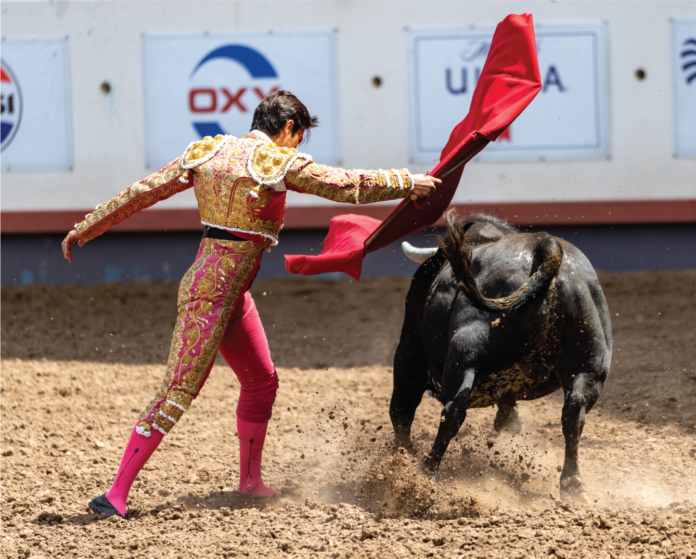Lawmakers in Mexico City have officially banned violent bullfighting, putting an end to a centuries-old tradition. The decision passed with a sweeping 61-1 vote, shows a major victory for animal rights advocates and sets a new direction for the capital’s cultural and ethical landscape.
The new law prohibits killing bulls and using sharp weapons during bullfighting events. Instead, it encourages a more humane version of the sport called “bullfighting without violence.” The legislation also sets time limits on how long a bull can stay in the ring to reduce suffering during these events.
Animal rights groups celebrated the move, calling it a long-overdue step toward compassion and respect for animals. Supporters gathered outside the Congress building, cheering and holding stuffed bull toys.
Sofía Morín, an activist from the group Culture Without Torture, said, “It was either this or nothing. We prefer this because, without a doubt, it’s a huge step in protecting animals.”
Mexico City’s Mayor Clara Brugada also expressed strong support for the ban. She said the capital is now leading the way in becoming a place “that respects the rights of animals.”
Her statement reflects a growing shift in public values, where the well-being of animals is becoming more important than maintaining traditional but violent practices.
However, not everyone is celebrating. The decision triggered anger from bullfighting supporters, including matadors, breeders, and fans of the centuries-old sport. Protesters gathered outside the local Congress in large numbers, some waving signs that read,
“Being a fan of la fiesta brava is not a crime, it’s a point of pride.” A few even tried to push through police barricades, expressing deep frustration and calling the law an attack on national heritage.
For many, bullfighting is more than just a sport. It is considered part of Mexico’s cultural identity and has strong economic ties. The National Association of Breeders of Fighting Bulls in Mexico claims that the industry supports around 80,000 direct jobs and another 146,000 indirect jobs. It also contributes roughly $400 million to the economy each year.
Those worried about job losses say the new law could deeply affect their way of life. Juan Pablo Pimienta, a vocal protester, shouted through a megaphone during the demonstrations. He said, “It’s an activity where the fighting bull dies in a bullring. That’s its nature. It is a beast.”
Green Party lawmaker Jesús Sesma addressed these concerns during his speech in Congress. He assured families who depend on the bullfighting industry that the new law does not mean they will lose their jobs.
“There was a middle ground to continue with these bullfighting spectacles, but now without violence,” he explained. Sesma and other lawmakers believe the reform allows traditions to continue while reducing animal cruelty.





